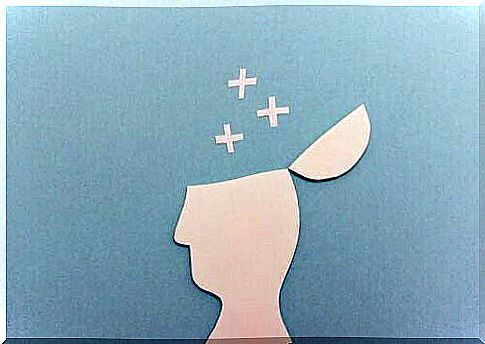Get To Know Some Interesting Psychological Effects

Psychology is a science capable of offering an explanation for a multitude of events that occur in our daily lives. Without being aware of it, all of us, human beings that we are, fall prey to certain interesting psychological biases or effects.
Some harm us, some don’t; some are typical in certain societies, others are common among teenagers, etc. In any case, the fact is that they have in common the fact that the brain uses shortcuts to save all the information that we have to process daily. This sometimes gives rise to certain interesting effects.
Saving the information we receive during the day is of paramount importance. Although our brains can sometimes make mistakes, these biases or effects often favor our adaptation.
Think back to cave times. Better to be fast and effective than analytical and slow. These last characteristics, while they can lead us to a more correct answer, can also lead us to ‘t ars too much’ .
What is also certain is that advertising, business, and culture today have echoed these psychological effects we tend to fall into and have bet on them as a means of improving their sales. And they did. Below, we offer some examples of interesting psychological effects, although there are many more. Which ones do you identify with?

Interesting psychological effects worth knowing
Barnum Effect
How many times have you read your horoscope and think: this is exactly what happens to me! May I help. Once again, it’s your brain that’s skewed. What you read is not what is happening to you in particular. You have fallen victim to the Barnum effect, also called the Forer effect .
This happens when we are told or read certain descriptions that seem to fit perfectly with what we know about us. However, if we analyze them well, we can realize that they are nothing more than general, vague and imprecise descriptions that could fit the profile of a large part of the population.
Take the test yourself; read the following excerpt:
“Be careful with the projects you undertake, Libra, you always put on more weight than you can handle. Check your limits. This week there will be someone who wants to ask you for help, try to do what you can, but don’t take responsibility for the emotional change. Your health may get worse, but it won’t last long, then you’ll return to weight as you always do. On Monday and Tuesday you will feel very active, but then the pace will gradually slow down.”
As you can see, almost anyone could fit in here. Who is not trying to undertake some personal project and sometimes is very dedicated to the work? Who doesn’t have someone around them who is going through a difficult period? Who doesn’t get a cold from time to time or have a back hurting? On Monday and Tuesday we are more active, of course, we come from the weekend and then we get tired.
Anchoring effect
This effect is widely used in advertising campaigns. Imagine you go shopping and see a coat you love. It has two tags: one with a very high value and one with a much smaller value, which would be the current price.
Without thinking, you buy the coat. What happened? The first price served as an anchor that you took as a reference to think you were paying a bargain and therefore couldn’t miss that opportunity.
Fundamental attribution error
It happens when we overestimate someone’s personal motives over situational motives. In other words, people generally point to “character”, “personality”, etc., as causing something rather than thinking that perhaps the person’s circumstances or surroundings have influenced their behavior much more. This, consequently, leads to erroneous explanations about the way of being of others.
Effect of false consensus
It occurs when we overestimate the number or degree of people who agree with what we think. It’s a way of exaggerating confidence in our own beliefs, even if they are wrong. This effect can have negative consequences: it prevents us from opening up to the world, to the ideas of others, to the way others think and feel.
Therefore, we run the risk of losing valuable information that would be extremely useful, for example if we are a company owner and we work with more people who do not think alike and who could contribute with other ways of looking at things.

illusory correlation
This effect leads us to overestimate the relationship between two variables which are, in reality, independent. For example, think about pathological gamblers. They might tell themselves that “the slot machine is hot because it hasn’t given out prizes in a while.”
In this sense, we are relating time to the probability that someone wins, which we rationally know is unrelated, especially if we know that slot machines follow a variable or random ratio program.
self-fulfilling prophecy
It is also known – with nuances – as the Pygmalion effect in the educational field, or the Rosenthal effect in the area of organizations and companies. It is an effect that arises when we have deep beliefs about a specific issue and act on them.
What happens is that reality ends up confirming these beliefs as if they were a prophecy. For example, a person suffering from pathological jealousy may end up favoring infidelity with their initially unfounded jealousy. Your behaviors of questioning your partner, spying on him, and harassing him tire the other, who may end up leaving the relationship.
blind spot effect
Finally, the blind spot effect refers precisely to the fact that, most of the time, we do not recognize our own biases and effects. We think that this is something that “happens to others”, when it is common, to a greater or lesser degree, to get biased and fall into different effects.
As you see, no one can get rid of these interesting psychological effects. It is important to know them and recognize them when they appear, such as in sales, promotions, addictions, etc.
In this sense, when psychological effects do us more harm than good, it is interesting to try to name them, to know that they exist and not to fall into the trap. And you, with what effect did you identify yourself?








